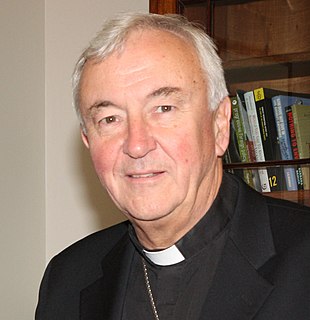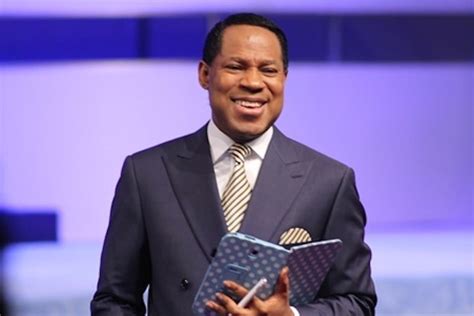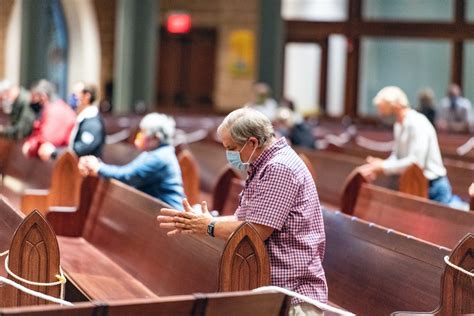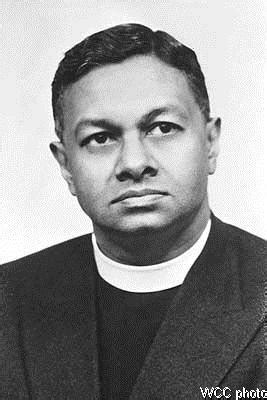A Quote by Gustavo Gutiérrez
Faith is not limited to affirming the existence of God. No, faith tells us that God loves us and demands a loving response. This response is given through love for human beings, and that is what we mean by a commitment to God and to our neighbor.
Related Quotes
The whole story of creation, incarnation, and our incorporation into the fellowship of Christ's body tells us that God desires us, as if we were God, as if we were that unconditional response to God's giving that God's self makes in the life of the Trinity. We are created so that we may be caught up in this, so that we may grow into the wholehearted love of God by learning that God loves us as God loves God.
God never gives up on us no matter how hard we try to get ourselves loose. God does not let go. That doesn't mean he controls everything we do. It doesn't mean he puts a bridle on us and leads us by the nose. He gives each one of us free will and common sense and a spirit that can communicate with his. When we go through afflictions, he allows us to choose our response. But no matter what our response may be, he sticks around to the bitter end.
There are two gods. The god our teachers teach us about, and the God who teaches us. The god about whom people usually talk, and the God who talks to us. The god we learn to fear, and the God who speaks to us of mercy. The god who is somewhere up on high, and the God who is here in our daily lives. The god who demands punishment, and the God who forgives us our trespasses. The god who threatens us with the torments of Hell, and the God who shows us the true path.
There are two gods. A god who casts us off because of our sins, and a God who calls to us with His love.
The unbreakable bond between love of God and love of neighbor is emphasized. One is so closely connected to the other that to say that we love God becomes a lie if we are closed to our neighbor or hate him altogether. Saint John's words should rather be interpreted to mean that love of neighbor is a path that leads to the encounter with God, and that closing our eyes to our neighbor also blinds us to God.
It is an item of faith that we are children of God; there is plenty of experience in us against it. The faith that surmounts this evidence and is able to warm itself at the fire of God's love, instead of having to steal love and self-acceptance from other sources, is actually the root of holiness: It is a fatal mistake to think of holiness as a possession which we have distinct from our faith... Faith is the very highest form of our dependence on God.
I believe God loves the world through us - through you and through me. We use Mother Teresa's name; it is only a name, but we are real co-workers and carriers of His love. Today God loves the world through us. Especially in times like these when people are trying to make God "was," it is you and I, by our love, by the purity of our lives, by our compassion, who prove to the world that God "is."
Love is universal. You don't have to tell somebody that loving is better than hating. You don't have to believe in God to know that stealing is bad. All of God's children and their different faiths help to realize the immensity of God. No faith contains the whole truth about God. And certainly Christians don't have a corner on God. All of us belong to God.
The chief difficulty is that God demands of us that we live by faith: faith in God, God's sovereignty over the future, God's sufficiency for the present; while, on the other hand, the various other gods whom we can serve appeal to us in terms of the things which we can see and the forces which we can calculate. The choice between the life of faith and the life of sight is a choice between a God whom only faith can apprehend and gods whom one has only to see to understand.
God’s love sets us free from the need to seek approval. Knowing that we are loved by God, accepted by God, approved by God, and that we are new creations in Christ empowers us to reject self-rejection and embrace a healthy self-love. Being secure in God’s love for us, our love for Him, and our love for ourselves, prepares us to fulfill the second greatest commandment: To love our neighbor as ourselves.
God's unfailing love for us is an objective fact affirmed over and over in the Scriptures. It is true whether we believe it or not. Our doubts do not destroy God's love, nor does our faith create it. It originates in the very nature of God, who is love, and it flows to us through our union with His beloved Son.
If God made no response except to perfect faith, who could hope for help? But God has regard for beginnings, and His eye perceives greatness in the germ. The hand of the woman in the crowd trembled as it was stretched toward Jesus, and the faith back of it was superstitiously reverent, trusting in the virtue of the robe, rather than in the One who wore it; yet the genuineness of that faith; feeble though it was, triumphed in God's loving sight. Real trust is real power, though the heart and hand be feeble.





































